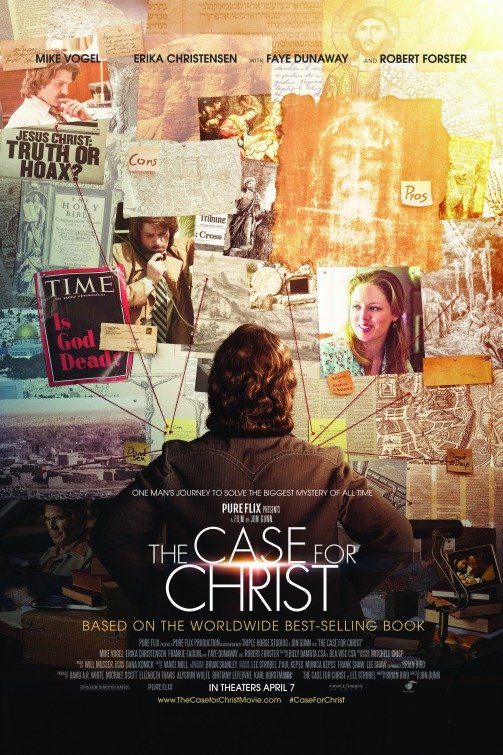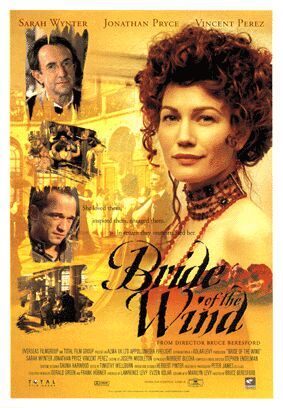“Stifled Libertine Feminist Revolts”

| None | Light | Moderate | Heavy | |
|---|---|---|---|---|
| Language | ||||
| Violence | ||||
| Sex | ||||
| Nudity |
What You Need To Know:
Instead of tastefully presenting the facts of Alma Mahler-Werfel’s scandalous life, and the lives of her various paramours, BRIDE OF THE WIND includes two scenes of depicted fornication and some glimpses of full female nudity. The movie also takes a feminist stand on Alma and the men she meets. Her betrayal of her lovers and two of her three husbands are excused because they have stifled her musical talent, directly or indirectly. Thus, despite beautiful photography, good acting and some wonderful music, BRIDE OF THE WIND fails to generate much compassion for this deeply flawed, proto-feminist woman.
Content:
(RoRo, FeFe, RHRH, AB, AC, So, L, V, SS, NNN, A, D, M) RoRo worldview with solid pro-feminist elements, revisionist history (including a not so benign neglect of the religious faith in society during the time the movie takes place & the later interest in faith issues in one historical character who became very important in the life of the female protagonist after the movie ends), some anti-Semitic elements, & female protagonist makes a comment against socialism when she meets Austrian writer Franz Werfel, a socialist rabble rouser following World War I who later wrote THE SONG OF BERNADETTE, a bestselling novel about the saint of Lourdes which was later made into an Oscar-winning movie about strong Christian faith; 0 obscenities & 1 mild profanity (“My God”); mild war violence, but some slightly more gruesome (though not overly so), medium shots of corpses on battlefield, plus little girl dies of a fever; depicted fornication & implied adultery; upper female nudity & brief or partially obscured full female nudity; alcohol use; smoking; and, sexual libertinism, betrayal & emotional/mental cruelty.
More Detail:
BRIDE OF THE WIND focuses on the early life of Alma Schindler, an attractive femme fatale born to a prominent family in Vienna in 1879. A childhood friend, and rumored lover, of controversial painter Gustav Klimt, famous for his erotic portraits of women, Alma met composer Gustav Mahler in 1901. Although 19 years her senior, Mahler married the seductive beauty in 1902 – after a torrid affair, according to the movie. Mahler, however, asks Alma to give up her own musical career, including her talent as a classical composer and pianist. BRIDE OF THE WIND describes Alma’s tumultuous relationship with Mahler, which results in her own adultery and reconciliation with the composer, who, however, died shortly after their reconciliation, a reconciliation which was helped along by Sigmund Freud, of all people!
After depicting Mahler’s death in 1911, the movie goes on to briefly describe several other affairs and two other marriages Alma makes with three other famous artists. The three artists include the architect who almost destroyed her marriage with Mahler (and probably helped spur his early death), an expressionist painter and Franz Werfel, the romantic, socialist-leaning author of THE SONG OF BERNADETTE about a Roman Catholic saint. The movie suggests that it is only under Franz that Alma is able to let her musical talent blossom.
Instead of tastefully presenting the facts of Alma Mahler-Werfel’s scandalous life, and the lives of her various paramours, BRIDE OF THE WIND includes two scenes of depicted fornication and some glimpses of full female nudity. The movie also takes a feminist stand on Alma and her romantic relationships, although it’s not self-righteous, preachy or strident about it. Ultimately, the movie excuses her betrayal of her lovers and two of her three husbands because they have stifled her musical talent, either directly or indirectly. At one point, she even tells her lover, the painter, that she has decided to abort their illegitimate child, an announcement which encourages him to risk his very life in World War I.
Because of these evil betrayals, BRIDE OF THE WIND fails to generate much compassion for Alma’s character. In fact, at another point, in an argument with Mahler, who has just discovered her infidelity, Alma tells Mahler she hates his “Jewish music.” So, viewers can also hold an outburst of anti-Semitism against Alma, not just the sin of sexual libertinism.
BRIDE OF THE WIND does, however, contain beautiful photography, good acting and some wonderful music. The romantic interludes with the painter, Oskar Kokoschka, and Alma’s last husband, Franz Werfel, seem to have the most emotional appeal. The movie creates sympathy for the passionate Oskar when Alma betrays him, and the scenes with Franz suggest that his kind geniality brings out the best in her. Yet, many viewers, especially Christian ones, may want to see more scenes between Alma and Franz. Not only did Franz write THE SONG OF BERNADETTE, which was made into a great movie about Christian faith, but Alma remained married to him, her longest continuous relationship, until his death in 1945.


 - Content:
- Content: 

